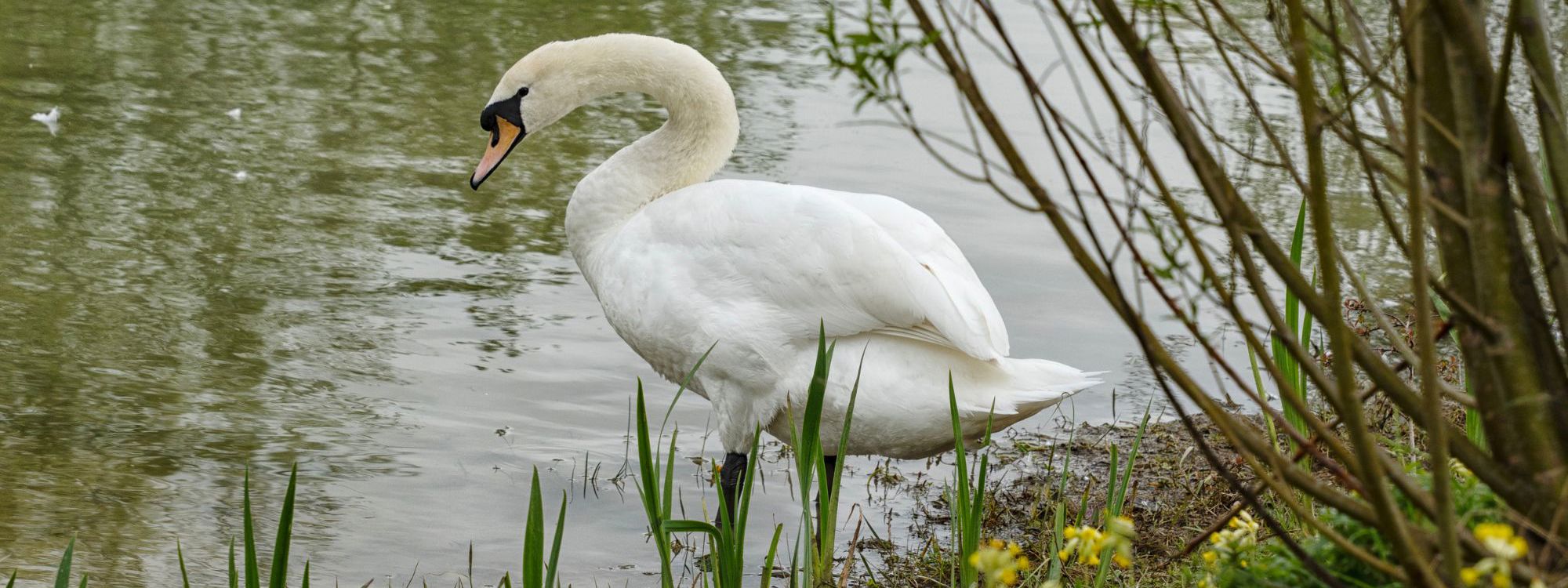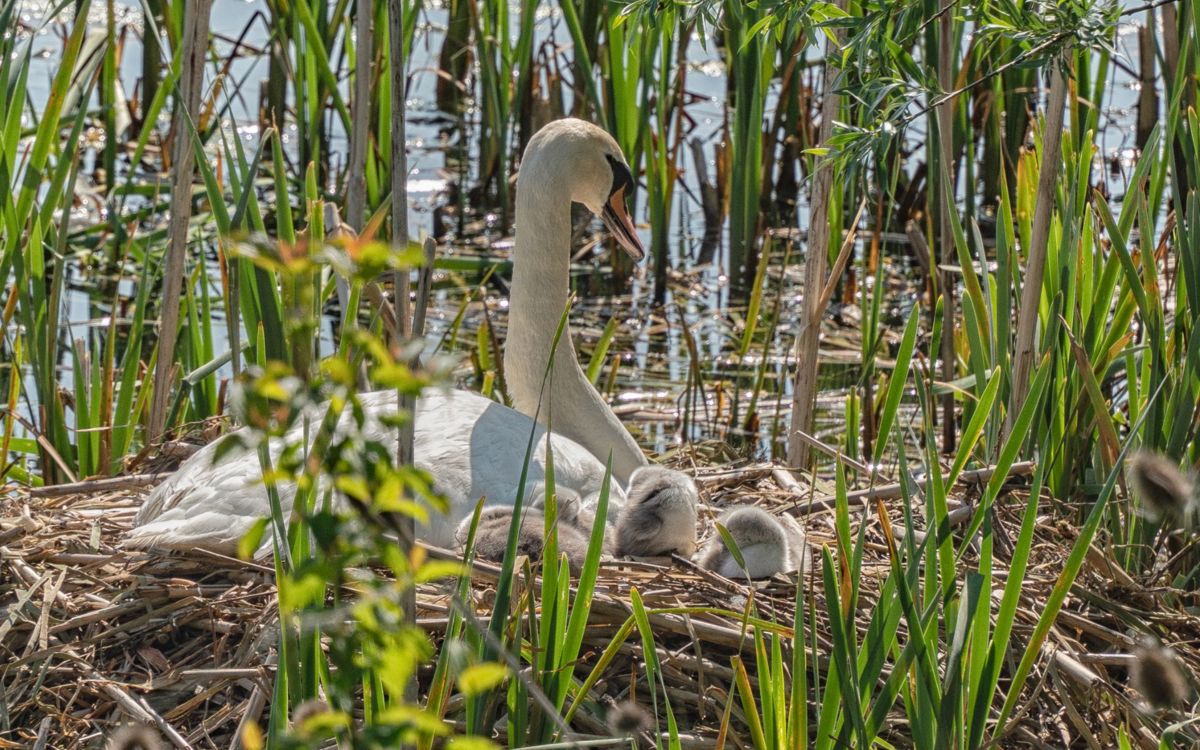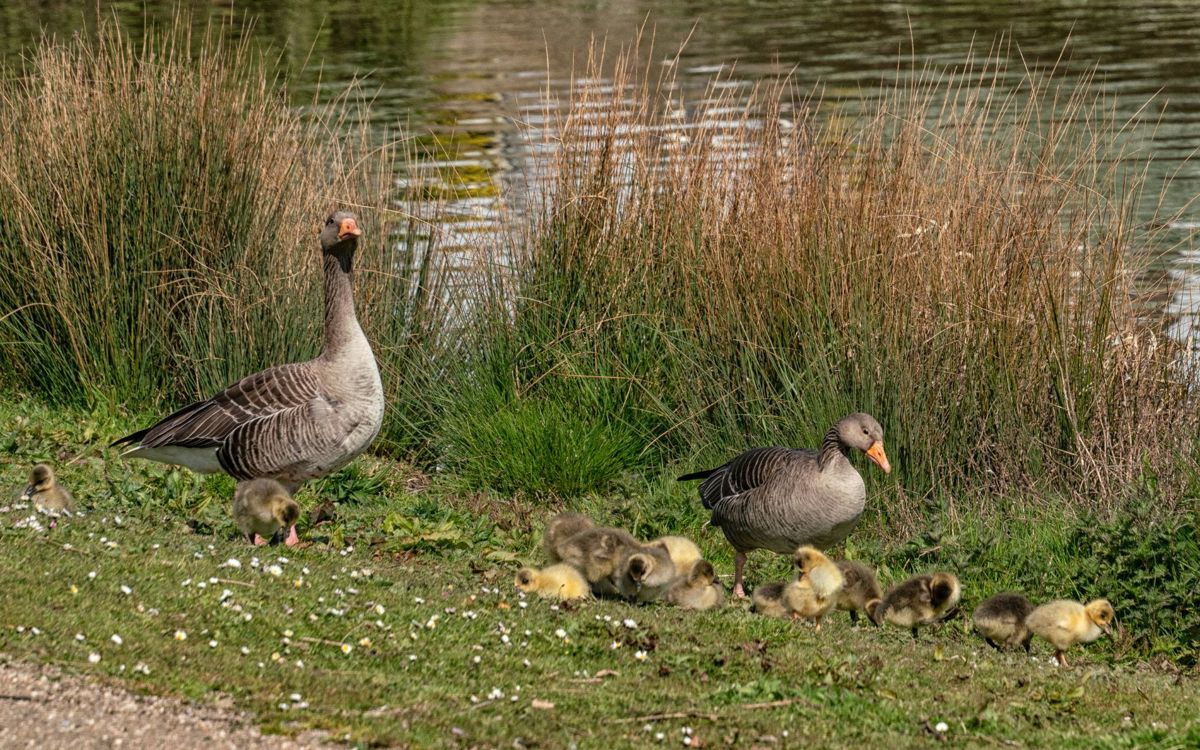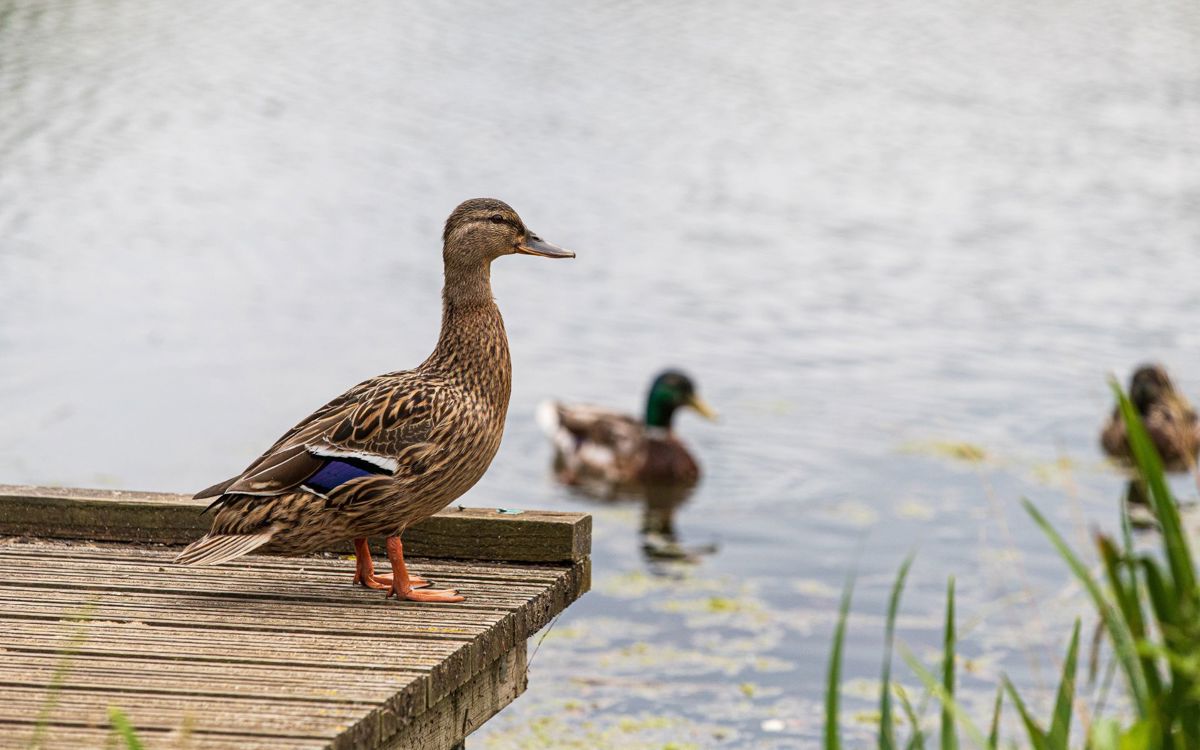
The lakes, wetland nature reserves and rivers and canals in Milton Keynes are home to a wealth of wildfowl including ducks, geese, swans and wading birds.

Bird Flu Update
There has been positive cases of bird flu in Milton Keynes’ parks. Please help us to avoid spreading by following the below advice:
- Keep to foothpaths, with dogs on leads in areas with wildfowl
- Do not feed the waterfowl - this encourages the birds to gather, increasing the risk of the virus spreading
- Do not pick up or touch dead or sick wild birds
- Do not touch feathers or surfaces where there are bird droppings
- If you keep poultry or other birds, wash your hands, clean and disinfect your footwear before tending your birds.
Please report any sightings of dead birds in our parks to us on communityranger@theparkstrust.com or 01908 233600 and we will arrange removal and contact the relevant agencies.
We are monitoring the situation and are following the latest Defra guidance.

Nesting Swans
Mute Swans build very large nests, usually right next to a watercourse or open water, in early spring. Some of these nests will fail as a result of high levels of disturbance from people or wildlife. Experienced swan pairs tend to find more secure nesting sites, such as small islands, but younger pairs may be more vulnerable.
Sometimes we receive queries about whether we defend swan nests in our parks. We don't intervene with nesting swans, as they should be left undisturbed. If necessary we may install temporary signs in locations where nests are near busy footpaths, advising visitors that nesting swans are present and requesting dog walkers to put their dogs on a lead. All wild birds are protected under UK law and it is a criminal offence to intentionally or recklessly disturb nesting birds, their eggs or dependent young.

Injured or Sick Birds
Should you come across a bird which appears to be injured or sick, the first thing you should do is to observe it for a while. Often birds which may appear ill are merely lethargic (they will roost with eyes half open). Under no circumstances should you try to handle or interfere with a bird yourself – you may make things worse for the bird and put yourself at risk. It is important to remember that mortality is natural and common in wildlife and animals such as foxes will prey on weak birds, especially in the winter months.
If you come across a water bird on Parks Trust land that is obviously injured, there is a local voluntary group who may be able to help – MK Swan Rescue.
Unfortunately, our staff are not trained or equipped to deal with sick or injured wild birds or animals. Our Community Ranger team removes dead animals if found on our land, you can report sighting to us by emailing communityranger@theparkstrust.com.

Feeding Waterfowl
There has been much debate recently, both locally and nationally, about the pros and cons of feeding waterfowl. Although swans, ducks and geese are designed to feed mainly on aquatic plants and small invertebrates, people like to supplement their food. Generations of children have enjoyed feeding bread to swans and ducks but we now know this is far from good for them.
Bread is a totally unnatural food source for birds and the salts and preservatives in modern bread have been linked to deformities in their bone development. As well as this, uneaten bread is very bad for the environment, causing increased algal growth in lakes and attracting rats. If you decide to feed waterfowl, please use good-quality birdseed, tinned sweetcorn or chopped lettuce and vegetables. These foods better replicate their natural diet and do not impact the natural environment.
